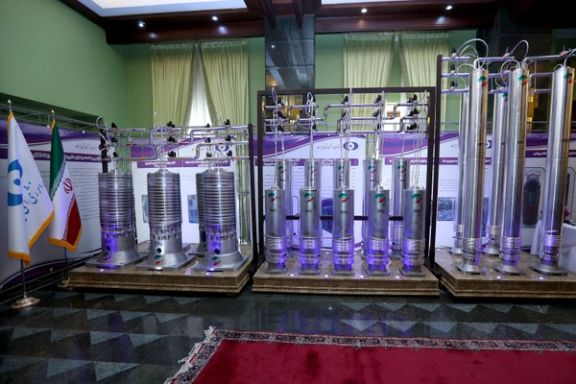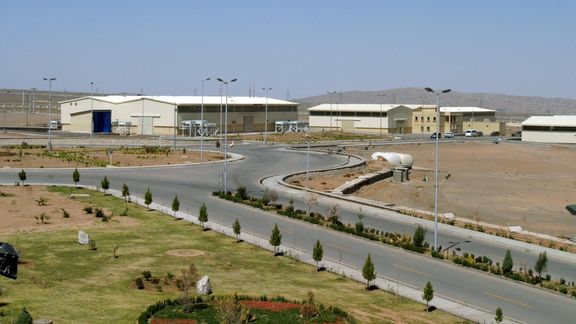Iran Speeds Up Uranium Enrichment To Near Weapons-Grade, Says UN

The United Nations nuclear watchdog says Iran has reversed a months-long slowdown in the rate at which it is enriching uranium to near weapons-grade.

The United Nations nuclear watchdog says Iran has reversed a months-long slowdown in the rate at which it is enriching uranium to near weapons-grade.
Iran has "increased its production of highly enriched uranium, reversing a previous output reduction from mid-2023", the International Atomic Energy Agency said in a statement summarizing a confidential report to member states seen by Reuters Tuesday.
According to the IAEA report, Iran is enriching to up to 60% at its Pilot Fuel Enrichment Plant (PFEP) in its sprawling Natanz complex and at its Fordow Fuel Enrichment Plant (FFEP), which is dug into a mountain.
"The Agency confirms that, since the end of November 2023, the rate at which Iran has been producing uranium enriched up to 60% U-235 at these two facilities combined has increased to approximately 9 kg per month," the report to member states said.
By the IAEA's theoretical definition, around 42 kg of uranium enriched to 60% is the amount at which making a nuclear bomb with it cannot be excluded. Iran already has enough uranium enriched to up to 60%, if enriched further, to make three nuclear bombs.

Earlier in the year, there were several reports that Iran's stockpile of uranium enriched to up to 60-percent purity, close to the roughly 90% of weapons grade, continued to increase albeit at a slower pace. The slowdown, which had reportedly begun by June, was seen as the result of secret talks between the United States and Iran that led to the release of US citizens held in Iran earlier this year.
Now that the Islamic Republic is internationally rebuked for the increased attacks on US and Israeli targets by its proxies across the Middle East, the IAEA has also become a little more vocal about Iran’s nuclear program. Several Iran-backed militia groups have increased attacks on US and Israeli targets across the region as well as international shipping as part of their attempts to pressure Israel, which has been at war with Hamas, another Iran-backed militia in Gaza.
IAEA inspectors first observed a change in production at Fordow on November 25, after which Iran said the change was made on November 22, and that the rate of production was returning to the pre-slowdown level there, the report said. Inspectors observed an increase in the production rate at Natanz on November 27, it added. The IAEA then verified the amount being produced at Natanz on December 19 and Fordow on December 24, it said. The IAEA did not formally notify its member states of the reversal of the slowdown until Tuesday's report.
Despite Iran’s constant violation of its nuclear commitments and efforts to stonewall the UN watchdog, the IAEA board of governors and its chief, Rafael Grossi, have failed to take any tangible actions. Grossi keeps reiterating that "significant safeguards issues remain outstanding" in Iran’s nuclear program and "no progress" has been made In Iran’s nuclear promises. In September, Iran also withdrew the designation of several inspectors assigned to conduct verification activities in Iran under the Non-Proliferation Treaty Safeguards Agreement. In late November, IAEA Director-General Rafael Grossi stated that Iran was not fulfilling many aspects of its commitments under the 2015 nuclear accord (JCPOA) and the March 2023 agreement.
Negotiations since April 2021 to revive the Obama-era JCPOA nuclear deal have failed to make progress, and Iran continues to expand its nuclear program. The previous US administration withdrew from the agreement in 2018 and imposed harsh economic sanctions. Iran retaliated by starting to violate the JCPOA limits and substantially increased both the quantity and the quality of its uranium enrichment.
Iran did not agree to a compromise plan proposed by the European Union in 2022 to revive the agreement, despite the Biden administration’s stated goal of finding a diplomatic solution. Earlier in the month, the Head of the Atomic Energy Organization of Iran (AEOI), Mohammad Eslami, said sanctions against the country must be lifted before Tehran fulfills its nuclear commitments.